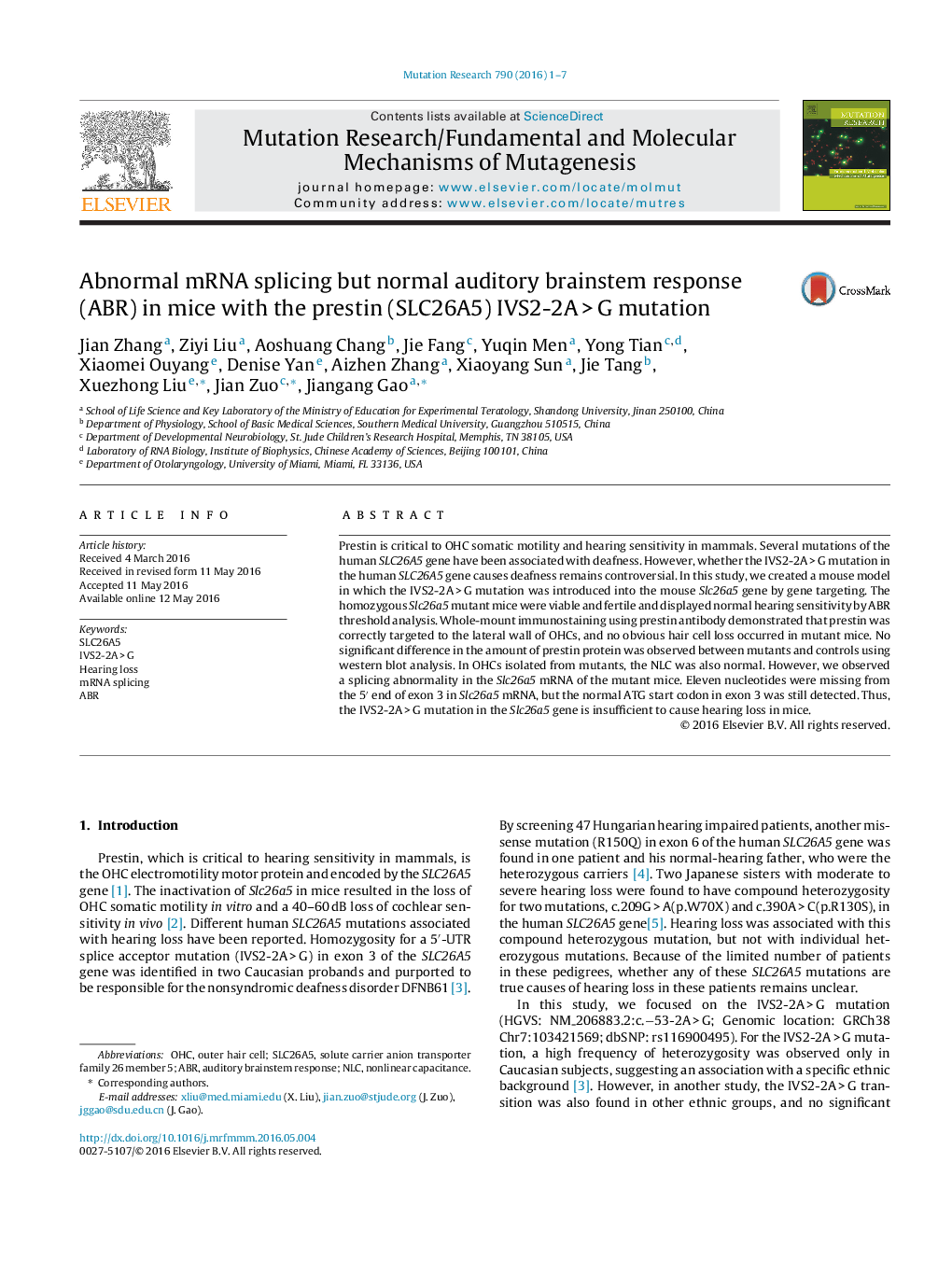| Article ID | Journal | Published Year | Pages | File Type |
|---|---|---|---|---|
| 2146104 | Mutation Research/Fundamental and Molecular Mechanisms of Mutagenesis | 2016 | 7 Pages |
•Whether the IVS2-2A > G mutation in the SLC26A5 gene causes deafness is unproven.•IVS2-2A > G mutant mice displayed normal hearing sensitivity.•The IVS2-2A > G mutation caused alternative splicing and loss of 11 nucleotides in mRNA.•The splicing abnormality did not affect the expression and function of prestin.•The IVS2-2A > G mutation is insufficient to cause hearing loss in mice.
Prestin is critical to OHC somatic motility and hearing sensitivity in mammals. Several mutations of the human SLC26A5 gene have been associated with deafness. However, whether the IVS2-2A > G mutation in the human SLC26A5 gene causes deafness remains controversial. In this study, we created a mouse model in which the IVS2-2A > G mutation was introduced into the mouse Slc26a5 gene by gene targeting. The homozygous Slc26a5 mutant mice were viable and fertile and displayed normal hearing sensitivity by ABR threshold analysis. Whole-mount immunostaining using prestin antibody demonstrated that prestin was correctly targeted to the lateral wall of OHCs, and no obvious hair cell loss occurred in mutant mice. No significant difference in the amount of prestin protein was observed between mutants and controls using western blot analysis. In OHCs isolated from mutants, the NLC was also normal. However, we observed a splicing abnormality in the Slc26a5 mRNA of the mutant mice. Eleven nucleotides were missing from the 5′ end of exon 3 in Slc26a5 mRNA, but the normal ATG start codon in exon 3 was still detected. Thus, the IVS2-2A > G mutation in the Slc26a5 gene is insufficient to cause hearing loss in mice.
